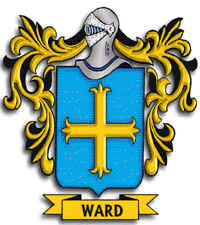
Artemas Ward (November 26, 1727 – October 28, 1800) was an American Major General in the American Revolutionary War and a Congressman from Massachusetts. President Adams described him as "...universally esteemed, beloved and confided in by his army and his country." Ward was much more effective as a political leader than as a soldier.
Early life and career
In 1755 the militia was restructured for the war, and Artemas Ward was made a Major in the 3rd Regiment which mainly came from Worcester County. They served as garrison forces along the frontier in western Massachusetts. This duty called him at intervals between 1755 and 1757, and alternated with his attendance at the General Court. In 1757 he was made the Colonel of the 3rd Regiment or the militia of Middlesex and "Worchester" Counties. In 1758 the regiment marched with Abercrombie's force to Fort Ticonderoga. Ward himself was sidelined during the battle by an "attack of the stone."
Prelude to revolution
Following Lexington on April 19, 1775 the rebels followed the British back to Boston and started the siege of the city. At first Ward directed his forces from his sickbed, but later moved his headquarters to Cambridge. Soon, the New Hampshire and Connecticut provisional governments both named him head of their forces participating in the siege. Most of his efforts during this time were devoted to organization and supply problems.
Additional British forces arrived in May, and in June Ward learned of their plan to attack Bunker Hill. He gave orders to fortify the point, setting the stage for the Battle of Bunker Hill on June 17, 1775. Command during the battle devolved upon General Israel Putnam and Colonel William Prescott. While General Ward received national recognition for the heroic stand made that day, his principal contribution was a failure to supply enough ammunition to hold the position.
The Army of Observation
Meanwhile, the Continental Congress was creating a Continental Army. On June 16 they named Artemas Ward a Major General, and second in command to General Washington. Over the next nine months he helped convert the assembled militia units into the Continental Army.
After the British evacuation on March 17, 1776, Washington led the main army to New York City. Ward took command of the Eastern Department on April 4, 1776. He held that post until March 20, 1777, when his health forced his resignation from the Army.
The Continental Army
Even during his military service, Artemas served as a state court justice in 1776 and 1777. He was President of the state's Executive Council from 1777-1779, which effectively made him the governor (before the 1780 ratification of the Massachusetts Constitution. He was continuously elected to the Massachusetts House of Representatives for each year from 1779 through 1785. He also served as a delegate to the Continental Congress in 1780 and 1781. Ward was the Speaker of the Massachusetts House in 1785. He was elected twice to the United States House of Representatives, serving from 1791 to 1795.
Artemas died at his home in Shrewsbury on October 28, 1800, and is buried with Sarah in Mountain View Cemetery. His great-grandson, Artemas Ward wrote The Grocer's Encyclopedia (published in 1911).
Politics: Life after war
 Legacy
Legacy